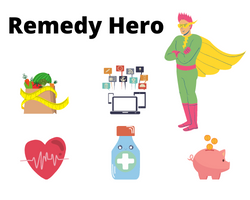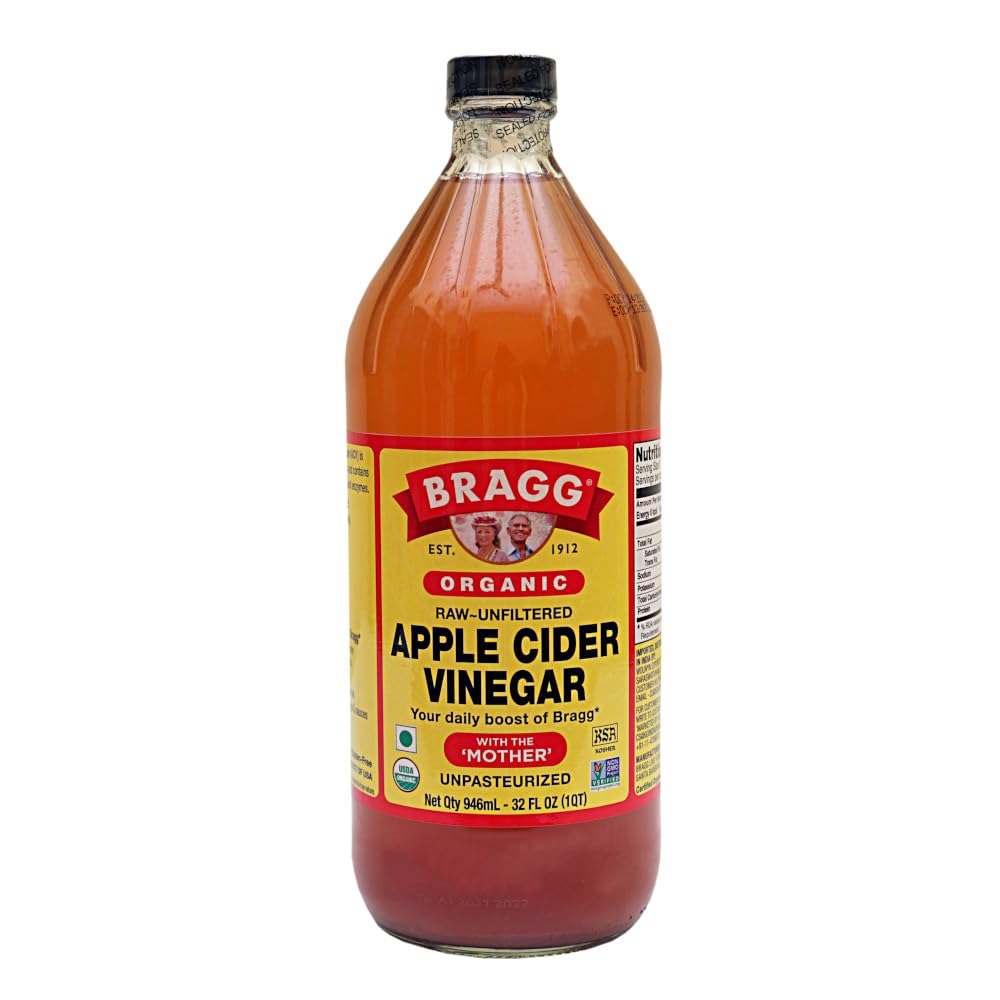ACV Gargle for Sore Throat: A Simple Remedy That Works
A sore throat can be uncomfortable and annoying, especially when it disrupts your day. Using an apple cider vinegar (ACV) gargle can provide relief and soothe your throat naturally. Many people look for home remedies that are not only effective but also easy to make at home, and ACV might just be the solution you need.

Gargling with a mixture of ACV and water is a simple way to harness its anti-inflammatory and antibacterial properties. It’s a popular choice among those seeking natural remedies. As you explore the potential benefits of an ACV gargle, you’ll find that it could help ease pain and reduce swelling in your throat.
If you’re curious about how to use this remedy and what to expect, stick around. You’ll discover effective ways to incorporate ACV into your routine and learn about other comforting measures to help you feel better fast.
Key Takeaways
- Gargling ACV can help soothe sore throats naturally.
- It’s a simple home remedy that can be easily made at home.
- There are additional comfort measures to enhance relief.
Understanding Sore Throats
Sore throats can be a real annoyance, often causing pain and discomfort. By knowing the common causes and when to seek help, you can better manage this issue.
Causes and Symptoms
Sore throats often stem from viral infections, like the common cold or flu. These types of infections are usually accompanied by cough and throat pain. Other common causes include bacterial infections, such as strep throat, which tend to present with more severe symptoms.
You might notice swelling in your throat, a scratchy feeling, or difficulty swallowing. Some people also experience a runny nose or fever. If your throat hurts a lot, or if you have a high fever, it may signal a bacterial issue rather than just a viral one. Allergies and irritants, such as smoke, can also cause throat discomfort.
When to Seek Medical Attention
It’s important to know when a sore throat might need more than home remedies. If your symptoms last longer than three days, you should consider seeing a doctor.
Also, seek help if you experience difficulty breathing or swallowing, as these can be serious signs. A high fever, especially above 101°F, may indicate a more serious condition. Lastly, if you notice white patches on your tonsils, it could be a sign of strep throat, and you should get tested. Your health is important, so don’t hesitate to reach out for help if you need it.
Benefits of Apple Cider Vinegar
Apple cider vinegar (ACV) offers several benefits that can make it a handy option for soothing a sore throat. Many people appreciate its natural properties that may help fight bacteria and balance pH levels in the body. Here’s more on what it can do for you.
Antimicrobial Properties
ACV is known for its antibacterial properties. This means it can help combat harmful bacteria in your throat. When you gargle with a mixture of ACV and water, you introduce a solution that may help reduce the germs causing irritation.
Using organic apple cider vinegar is a great choice since it contains the “mother,” which has more nutrients. This can enhance its effectiveness against bacteria. Mixing a tablespoon in water can create an easy gargle solution that helps target sore throat symptoms.
Besides its antibacterial benefits, ACV is also believed to assist with digestion. A healthy digestive system can play a role in your overall throat health, as you might experience fewer instances of acid reflux, which irritates the throat.
Balancing pH Levels
Another significant benefit of ACV is its ability to help balance pH levels in the body. Many people have diets high in processed foods and sugars, which can throw off your body’s natural pH balance.
When you consume or gargle ACV, it may help restore this balance. This is important because a more balanced pH can support immune function and overall health.
In addition, balancing pH levels may help prevent conditions like acid reflux. Maintaining a stable pH can mean fewer throat irritations in the long run. So, adding ACV to your routine might just keep your throat feeling better and more balanced.
How to Gargle Effectively
Gargling is a simple way to ease a sore throat. To do it right, you need to prepare your gargle solution and use the right techniques.
Preparing the Gargle Solution
To make an effective gargle, start with warm water. This helps soothe your throat. A common mix is salt water. Use about 1/4 to 1/2 teaspoon of salt in 8 ounces of warm water. Stir until the salt dissolves completely.
If you want to try apple cider vinegar, dilute it too. Mix 1 tablespoon of apple cider vinegar with 8 ounces of warm water. This adds antibacterial benefits. Always remember, warm water is key. It not only helps the solution mix well but also feels soothing against the throat.
Gargling Techniques
Now that you’ve got your solution ready, it’s time to gargle. Take a sip of your mixture, but don’t swallow it. Tilt your head back slightly and let the liquid sit in your throat. Then, gargle for about 30 seconds.
Make sure you produce a gentle sound. This helps push the liquid around your throat. Spit it out when you’re done. Repeat this a few times, about three to four times per session. You can gargle several times a day, especially when you’re feeling discomfort.
Stay consistent, and it can really help relieve that sore throat!
Additional Remedies and Comfort Measures
When you’re dealing with a sore throat, there are several other remedies and comfort measures that can help ease your discomfort. Incorporating soothing drinks, ensuring proper humidity, and allowing yourself to rest can make a big difference.
Herbal Teas and Warm Drinks
Drinking warm liquids is a great way to soothe your throat. Herbal teas, such as chamomile or ginger tea, not only provide warmth but also have anti-inflammatory benefits. Adding honey can help coat your throat and relieve irritation, while lemon juice boosts your vitamin C intake.
If you like spice, a touch of cayenne pepper can act as a natural expectorant. Just a pinch mixed into your tea might help clear mucus. For those who enjoy green tea, it’s packed with antioxidants, giving your body extra support while you heal.
Humidity and Hydration
Keeping the air in your home moist can significantly help with throat discomfort. Consider using a humidifier to combat dry air, which can worsen irritation. This makes breathing easier and keeps your throat from becoming scratchy.
Don’t forget about staying hydrated! Drinking plenty of water helps keep your throat lubricated and supports your overall health. Herbal teas and broths are also excellent choices. Probiotics found in yogurt or drinks can give your immune system a boost, helping your body fight off whatever’s causing your sore throat.
Rest and Recovery
Resting is key to recovery. Your body needs time to heal, so make sure you are getting enough sleep. Aim for 7-9 hours of quality sleep each night. This helps reduce inflammation and improve your immune response.
You can also try to stay relaxed during the day. Avoid overexerting yourself. Consider incorporating light activities such as gentle stretching or reading to pass the time. Keeping your mind occupied while your body heals can make the waiting period feel more manageable.
Safety Considerations and Risks
When using apple cider vinegar (ACV) gargle for throat discomfort, there are important safety aspects to know. From potential tooth enamel erosion to recognizing allergic reactions, staying informed can help you avoid unwanted side effects.
Protecting Tooth Enamel
Using ACV can be tough on your teeth. The acidity in apple cider vinegar may lead to tooth enamel erosion. This can make your teeth more sensitive and prone to cavities.
To protect your enamel:
- Dilute the vinegar with water before gargling. A common mix is one tablespoon of ACV in a glass of water.
- Limit frequency. Gargle no more than once daily to reduce exposure.
- Rinse with water afterward to wash away the acid. This helps safeguard your enamel.
If you notice increased tooth sensitivity, consider cutting back on ACV usage. Your teeth will thank you!
Recognizing Allergic Reactions
Though rare, some people may experience allergic reactions to ACV. Symptoms can include throat irritation, itching, or swelling.
Pay attention to how your body reacts:
- If you feel throat discomfort or notice swelling, stop using the gargle immediately.
- For those with a history of allergies, consult your doctor before trying ACV.
- Also, be cautious if you have conditions like heartburn or postnasal drip. ACV might worsen these issues.
Being aware of your body’s signals is crucial. Staying safe ensures you can enjoy the benefits without the risks!
Frequently Asked Questions
When it comes to using apple cider vinegar (ACV) as a gargle for a sore throat, you might have a few important questions. Understanding its effectiveness, possible side effects, and frequency of use can help you make informed choices for throat relief.
Can gargling apple cider vinegar really help soothe a sore throat?
Yes, gargling with apple cider vinegar can help soothe a sore throat. The vinegar may have antibacterial properties that can contribute to reducing irritation and inflammation in your throat.
What are the potential side effects of using apple cider vinegar as a gargle?
Using apple cider vinegar can lead to side effects like throat irritation or a burning sensation. Some people might experience stomach upset if they ingest too much vinegar.
How often is it recommended to gargle with apple cider vinegar for throat relief?
It’s typically recommended to gargle with apple cider vinegar a few times a day. Just be sure to mix it with water to reduce its acidity and protect your throat.
Does gargling apple cider vinegar have any benefits for throat infections?
Gargling with apple cider vinegar may help reduce the bacteria in your throat. While it’s not a cure, it might provide temporary relief from symptoms related to throat infections.
Could apple cider vinegar be harmful to throat tissue if used frequently?
Yes, frequent use of undiluted apple cider vinegar can cause damage to throat tissue. Always dilute it with water to avoid irritation and to keep your throat safe.
Are there quick remedies for sore throats that can be done overnight?
Yes, you can try remedies like warm salt water gargles, herbal teas with honey, or even throat lozenges to provide quick relief overnight. These options are gentle and may help soothe your throat while you sleep.

